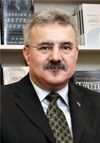The early years of Benjamin Beddome’s ministry at Bourton-on-the-Water saw great numerical growth of the church. Between 1740 and 1750 the church membership more than doubled. By 1751 it stood at 180.
Describing the state of the church members in 1750, Beddome could thus declare: ‘my labours have been, and are still, in a measure, blest unto them, above a hundred having been added since my first coming amongst them’.
Gloucestershire local historian Derrick Holmes notes that the success of Beddome’s ministry during his first ten years at Bourton was probably due to several factors. There were a number of good men active as deacons and in the leadership of the church during this period, including Beddome’s father-in-law, Richard Boswell.
Again, Beddome had developed the ability to preach in a manner fully comprehensible to his village congregation. Robert Hall, Jr (1764-1831), himself no mean preacher, noted that Beddome was ‘universally admired for the piety and unction of his sentiments, the felicity of his arrangements [of sermons], and the purity, force, and simplicity of his language’.

Catechising
Finally, Beddome was thoroughly convinced that vital Christianity was a matter of both heart and head. And, like others in the Reformed tradition of which his denomination was a part, Beddome found that the practice of catechising was helpful in matching head knowledge to heart-felt faith.
In fact, when Beddome’s obituary was written in 1795, it was observed that ‘one considerable instrument’ of his success at Bourton during the 1740s had been his use of catechetical instruction.
During the early years of his ministry Beddome used Benjamin Keach’s The Baptist Catechism extensively, but clearly felt that the questions and answers of this catechism needed to be supplemented by further material.
So he composed what was printed in 1752 as A Scriptural Exposition of the Baptist Catechism by Way of Question and Answer, which basically reproduced the wording and substance of the catechism drawn up by Keach, but added various sub-questions and answers to each of the main questions.
The Scriptural Exposition proved to be quite popular. There were two editions during Beddome’s lifetime, the second of which was widely used at the Bristol Baptist Academy, which was the sole British Baptist seminary for much of the eighteenth century.
In the nineteenth century it was reprinted once in the British Isles and twice in the United States, the last printing being in 1849.
Membership
Although Beddome’s congregation probably numbered between five and six hundred, the baptised membership was much smaller. As noted earlier, the total number of members in 1751 stood at 180.
But during the 1750s and the first half of the 1760s the numerical growth of the membership began to slow down. Between 1752 and 1754 none were added to the church and fifteen members were lost through death.
In 1755, however, twenty-two individuals came into the membership by baptism. Another year that saw a large accession to the church was 1764, when twenty-eight new members were added. But a good number must have died since the mid-1750s, for in that year the membership stood at 183.
The next thirty years of Beddome’s ministry saw decline in the church membership. Between 1765 and 1795, 53 new members were added by conversion and baptism. But in this same period 105 members died, 12 were sent to other Baptist works and two were excluded.
Thus, by 1795, the year that Beddome died, the church had 123 on the membership roll, sixty less than in 1764.
Vital step
It is quite clear from letters that Beddome wrote on behalf of the church to the local Baptist association during the last three decades of his ministry that he lamented this lack of growth.
The size of the congregation maintained its own to the end of his life, but the vital step of believers’ baptism, leading to full church membership, was taken by far fewer in the final three decades of his ministry than in the first two and a half.
A prayer written by Beddome in the church’s 1786 letter to the local association well expresses his concern: ‘Come from the four winds O Breath and breathe upon these slain that they may live. Awake, O North wind and come thou South, blow upon our Garden that the Spices may flow out’.
Nevertheless, there is no hint that Beddome ever thought of abandoning his post.
Earthly trials
These decades were also fraught with earthly trials. In 1762 he wrestled with what a fellow Baptist pastor, Daniel Turner (1710-1798), termed ‘a nervous disorder, attended with spiritual darkness and distress’.
Three years later, his eldest son, John, died at the age of fifteen. A second son, Benjamin, died in 1778 of what Rippon calls ‘a putrid fever’.
It is notable that the very day on which the younger Benjamin died, his father, little suspecting the news he would receive the next morning, wrote the following hymn to be sung at the close of the morning service that day.
My times of sorrow, and of joy,
Great God, are in thy hand;
My choicest comforts come from thee,
And go at thy command.
If thou should’st take them all away,
Yet would I not repine;
Before they were possess’d by me,
They were entirely thine.
Nor would I drop a murmuring word,
Tho’ the whole world were gone,
But seek enduring happiness
In thee, and thee alone.
What is the world with all its store?
‘Tis but a bitter-sweet;
When I attempt to pluck the rose
A pricking thorn I meet.
Here perfect bliss can ne’er be found,
The honey’s mix’d with gall;
Midst changing scenes and dying friends,
Be thou my all in all.
Six years later a third son, Foskett, drowned in the Thames at Deptford. Beddome’s dear wife had died earlier that year.
Infirmities
From the mid-1770s onwards he began to suffer from gout and experienced great difficulty in walking. Eventually it reached the point that he had to be carried to the church, and he would preach to his congregation seated. Despite his physical infirmities, however, Beddome refused to give up preaching.
At the heart of this refusal lay a deeply-held conviction about the vital importance of preaching. What historian Michael Walker has said of the nineteenth-century British Baptist community, is equally true of Beddome and his fellow Calvinistic Baptists in the eighteenth century. They regarded the pulpit as ‘a place of nurture, of fire and light, from which words gave wings to the religious aspirations of the hearers, bringing them – to the gates of heaven’.
Concluding article is here.










